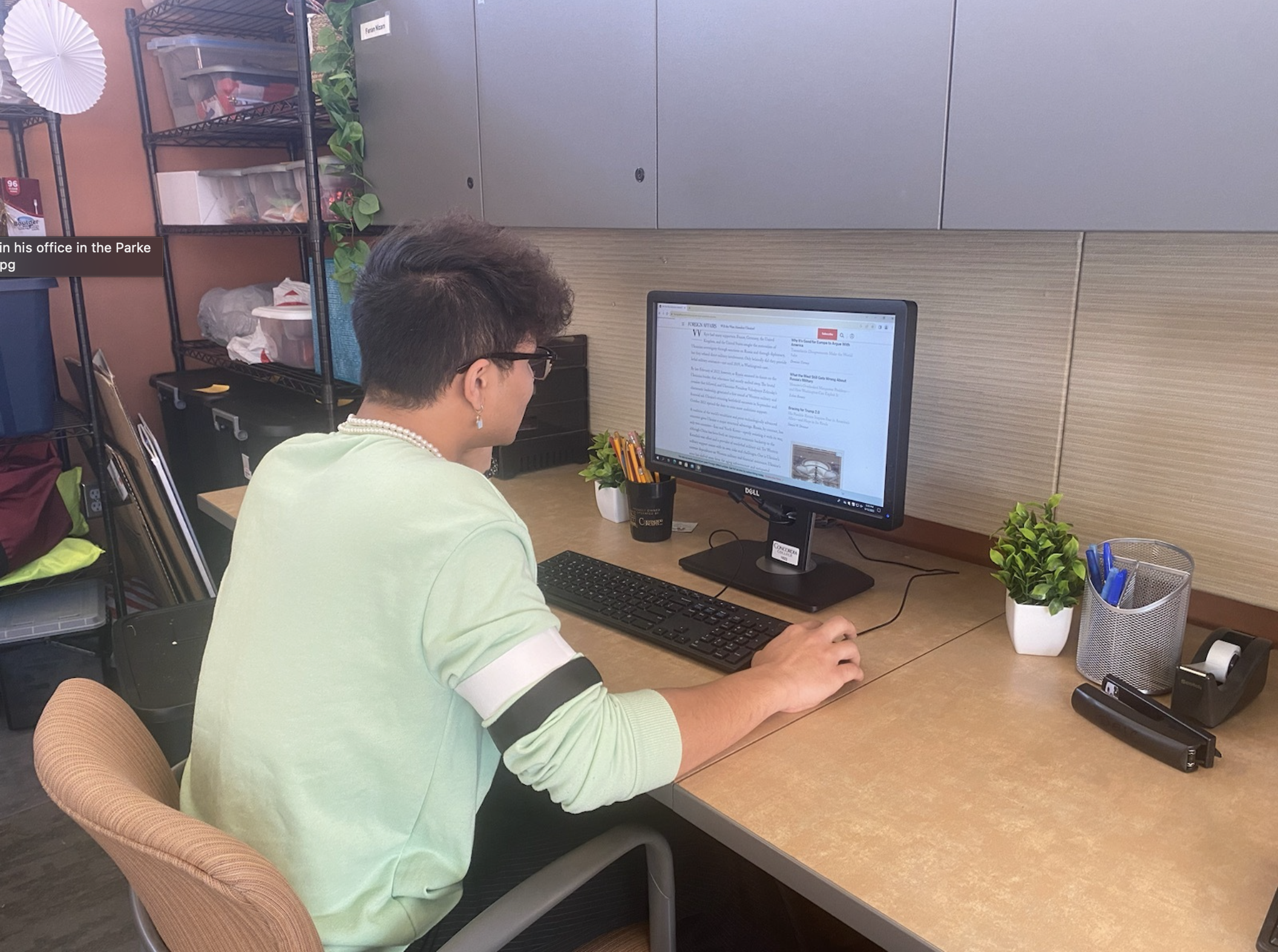MOORHEAD — International students make up a small but crucial part of Concordia’s undergraduate population. Over the last two years, the percentage of international first year students in the fall cohort has dropped from an all time high of 9% in 2021 down to only 3% this year.
International students are an important asset to Concordia and higher education in general, the director of global learning, Alicia Kauffman said. Despite their small population, these students provide others with an opportunity to learn about different cultures without having to study abroad.
“International students, in general, bring diverse perspectives to campus, to the community. Having those perspectives and experiences helps everybody reflect on their background and their view of the world,” Kauffman said.
“It changes the way you see the world and the way you think. It’s very different. The way you engage with people, accept differences, converse with people,” senior class representative and former International Student Organization (ISO) vice president Chelsea Masikati said.
That being said, the number of new international students joining campus this fall is a quite fewer compared to the number of domestic students.
“The ratio of international students to the whole student body number is very, very insignificant,” current ISO vice president, Siam Shimul said.
While the offices of global learning and international enrollment are available to help international students, the ways in which they can help are limited.
“ I think there’s a possibility of more diverse things and (increasing) comfortability on campus for international students or just students that are not white,” said Shinul
The global learning office is a resource for international students who need help or have questions about living in the U.S. Some common services that are available are help with landing internships and navigating financial and federal forms.
“They come to us so we can better advise them instead of them losing their immigration status,” international community coordinator, Jesse Kiboko said.
“The global learning office is the main channel where we go for any kind of help. Any legal questions, any campus questions, any education questions, anything like that,” Shimul said.
One specific thing the Global Learning Office helps with is taxes. However, they do not not always have solutions for students.
“You keep jumping around from one person to another and they don’t know the answer,” Shimul said.
While the Global Learning and Admissions offices are often helpful, they sometimes lack the specific necessary expertise required to help international students, Shimul said. With students from such a wide range of backgrounds, the tax laws can be different for each student.
“(They say) We’re here to support you, but are you able to support me?” Shimul said.
Taxes can be especially difficult for non-residents living in the U.S. for the first time, Shimul said.
The Global Learning and Admissions offices provide students with outside tax experts for short periods of time throughout the year. Last year they introduced a new tax software to help students file their state taxes. Shimul recalls that he attempted to get help with his taxes in a previous year but was told that they would not be able to help him.
“When I went to the tax expert, even they were confused,” says Shimul
Issues with taxes seem to plague international students and the help they receive can be hit-or-miss.
“It makes sense, sometimes it doesn’t make sense,” says Masikati.
In addition, the ISO has struggled in past years to put on events dedicated to international students, partially due to a lack of school support.
The International Festival is an annual event hosted by the ISO. It takes place in the Centrum and features different cultural aspects from the different home countries of international students, including a flag show where students can wave their country’s flag.
Last year, its budget was cut in half by the Studen Government Association about a week before the event was scheduled.
“A lot of times they cut it in half or things like that, and that restricts us from doing it properly,” Shimul said.
Luckily the Global Learning office was able to cover the rest of the budget and the festival still occurred.
“A lot of student organizations submitted a budget request at the same time. And we have a certain amount of money we can give each semester,” Masikati said.
SGA was not to blame for this mishap and the issue was handled fairly, Masikati said,
Concordia should not treat events like the International Festival as just any other event, such as bingo, Shimul said.
“These are events that create more social or international awareness that are the key things that will make international students more comfortable on campus,” Shimul said.
Setting aside a budget for more ISO events could be one way to help the international population on campus.
“I think there’s still work to be done in terms of funding those things, because a lot of times we would plan something but our hands would be locked because we don’t have that necessary funding and the school does not understand the importance of it,” Shimul said.

